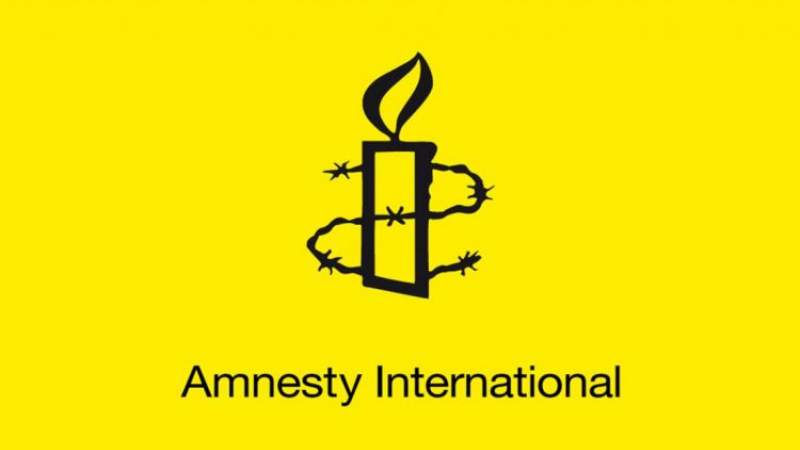Plan to Pull U.S. Troops from Somalia is Cold Comfort Amid Civilian Toll of Air War: Amnesty

World: By Abdullahi Hassan, Somalia Researcher at Amnesty International
President Donald Trump reportedly has asked the Pentagon for plans to withdraw U.S. troops from Somalia. But any potential drawdown of the 650 to 800 troops on the ground does not necessarily mean an end to U.S. military action in the country. And regardless of whether they stay or leave, any decision will be cold comfort to the many Somali civilians who suffer the consequences of the U.S. military’s deadly air strikes, many of which originate from bases outside of Somalia.
So far this year alone, there have been at least 47 air strikes, according to Airwars — a new record, and adding to nearly 150 in the first three years of the Trump presidency. Amnesty International, has investigated nine of these air assaults since 2019 and has determined that 21 civilians were killed and 11 injured. We have documented strikes that appeared to violate international humanitarian law, failing to take feasible precautions to spare civilians, and in some cases directly targeting persons Amnesty International has determined are civilians.
U.S. Africa Command (AFRICOM), which carries out the Somalia strikes, publicly states its main goal is to bring stability to the country and acknowledges this will not be achieved through purely military means. But AFRICOM’s words do not match its actions.
While the command says the United States wants to enhance governance and economic development, and address the root causes of instability, its air strikes have shattered key elements of Somalia’s society and economy that would be needed to achieve such progress. The air assaults have killed or injured prominent businessmen, doctors, and farmers; destroyed orchards and irrigation canals; and created new waves of internally displaced persons (IDPs). The strikes have killed and injured important members of Somalia’s fragile civil society.
Every week, relatives of victims of U.S. air strikes contact me for advice on how to pursue justice for the deaths or injuries of their loved ones. Since April 2019, AFRICOM has admitted killing five Somali civilians and injuring six others in three separate air strikes. However, none of those families or victims have been compensated by AFRICOM or by the government of Somalia.
In terms of prospective economic development, farming is one of Somalia’s main livelihoods. Since 2017, Amnesty International has documented at least eight farmers killed during U.S. air strikes, most in or around their farms.
U.S. air assaults also have destroyed houses and community shelters. For instance, on Dec. 6, 2017, a vehicle carrying suspected al-Shabaab fighters exploded in Illimey hamlet in Lower Shabelle. The blast destroyed half the village and killed five civilians, including two children. The attack also injured two more, including an 18-month-old girl.
Earlier this year, the house of Kusow Omar Abukar was significantly damaged in an air strike in Jilib on Feb. 2 that the U.S. military has admitted killed his daughter, and injured his elderly mother and two other daughters. The father, a 50-year-old farmer, was in the house at the time and described the attack to Amnesty International.
The U.S. air strikes also create perpetual uncertainty and fear, several Somalis told me in interviews. According to the U.N., more than 180,000 people have left Lower Shabelle so far this year, many of them fleeing conflict and insecurity. Most end up in IDP camps in Mogadishu or nearby, where they risk exploitation and abuse, including sexual violence. Women and children are particularly vulnerable to abuse, marginalization, and exclusion.
AFRICOM insists its aim is to ‘degrade’ al-Shabaab. But in reality, this campaign is taking a heavy toll on civilians and civilian infrastructure. Air strikes that kill and injure civilians, destroy farms and irrigation canals, and increase IDPs are not the answer.
Source: Amnesty website
-
06:53
Palestinian Mujahideen Movement: We condemn the US labeling Ansarullah as terrorists for supporting Palestine
07:37
Al-Rowaishan: We affirm that Yemen faced attempts and pressures, but it only responded when the aggression against Gaza stopped.
07:37
Al-Rowaishan: We support our brothers in Palestine and will continue on this path, regardless of the pressures.
07:37
Al-Rowaishan: The victory achieved in Gaza is a victory by all standards, the resilience of the fighters in Gaza has proven that the standards of strength are different.
07:36
Al-Rowaishan: We thank our brothers in the Sultanate of Oman for their efforts, we affirm to those who have been released that they should convey the image of Yemen to their people.





